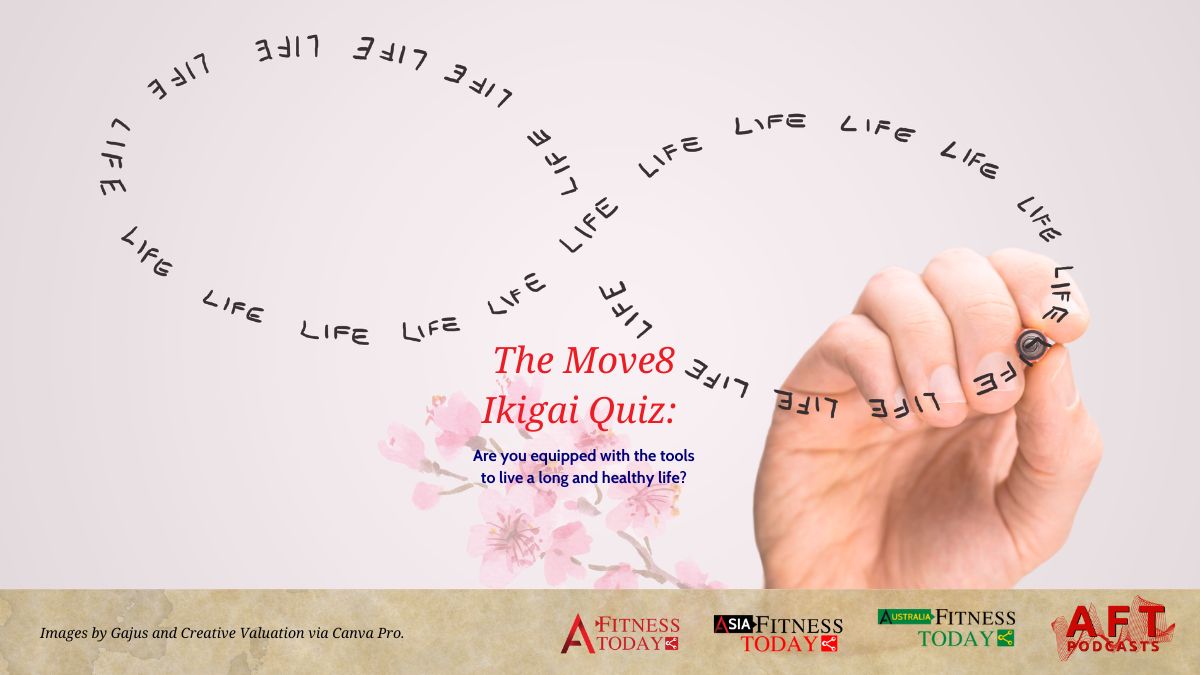Tim is a successful jazz musician from Alberta, Canada and for twenty years, he was immersed in music; from performing with bands, singing at events and in front of prime ministers and royalty and writing this book, How to Ikigai: Lessons for Finding Happiness and Living Your Life’s Purpose.
My cousin Angeline gifted me with a best seller by Hector Garcia and Francesc Miralles titled, Ikigai The Japanese Secret to a Long and Happy Life. Not so secret anymore, it seems, this ideology that originated from Okinawa, Japan. Or not…

The authors interviewed residents of the Japanese village with the highest percentage of 100-year-olds—one of the world’s Blue Zones in Okinawa. How did they eat, how did they move, how they worked, how they fostered collaboration and community, and—their best-kept secret—how did they find the ikigai that brings satisfaction to their lives?
1. Stay active and don’t retire
2. Leave urgency behind and adopt a slower pace of life
3. Only eat until you are 80 per cent full
4. Surround yourself with good friends
5. Get in shape through daily, gentle exercise
6. Smile and acknowledge people around you
7. Reconnect with nature
8. Give thanks to anything that brightens our day and makes us feel alive.
9. Live in the moment
10. Follow your ikigai
So I decided to do a quick check on what others thought of the concept, especially Japanese people (including foreigners who live in Japan).
What is ikigai?
Melbournian editor in Japan, Lucy Dayman wrote about the origin of ikigai in online magazine Savvy Tokyo. Here’s what she wrote:
The origin of the word ikigai goes back to the Heian period (794 to 1185). Clinical psychologist and avid expert of the ikigai evolution, Akihiro Hasegawa released a research paper in 2001 where he wrote that the word “gai” comes from the word “kai” which translates to “shell” in Japanese.
During the Heian period, shells were extremely valuable, so the association of value is still inherently seen in this word. It can also be seen in similar Japanese words like hatarakigai, (働きがい) which means the value of work, or yarigai ~ga aru (やり甲斐がある), meaning “it’s worth doing it.”
Ikigai Tribe podcast
I also found Ikigai Tribe – a podcast by Ikigai coach Nick Kemp. His ikigai, is about what ikigai truly means to the Japanese and how you can find it to make your own life worth living. This first episode features Professor Akihiro Hasegawa of Toyo Eiwa University, one of Japan’s leading researchers and experts on ikigai. Together, they discuss the meaning and origin of the word “ikigai”, his research, the Mother of Ikigai Psychology, Mieko Kamiya, and more.
One of the takeaways from the podcast, was his study in dementia patients. Patients with strong sense of Ikigai, deferred dementia.
A diagram depicted in Garcia and Miralles’ book about the meaning of Ikigai went viral very quickly but it turns out many Japanese people disagreed and didn’t think it was a good representation of the concept. It was a gentrified version, simplified and wrongly inserted a line, “that you can be paid for”, which was something of err to the original ideology. Google Ikigai diagram images and you will see so many versions plagiarised from one to another, but based on the wrong interpretation – a peril of good information that’s wrongly interpreted but gone viral. I found Kyle Kowalski’s SLOWW movement and he described the origin of the diagram in detail, the Ikigai concept.
So what is really the true meaning of Ikigai and how can one achieve it?
“Only staying active will make you want to live a hundred years.”
Japanese proverb
In the podcast interview, Hasegawa Sensei shared that Ikigai was a way of life and not so much something you’d do which you can be paid for.
- Health
- Intellectual Activeness
- Social Roles in Communities
- Family Structure (especially in rural areas)
These were the core areas of Ikigai, as described by Hasegawa Sensei.
Peggy Oki talks about flow and motion and it’s clear her ikigai is sharing tales about the ‘Cetacean Nation’. A Surfer, Skateboarder, Artist and Activist, Peggy founded the Origami Whales Project in 2004 to raise awareness about commercial whaling. She has also developed the Whales and Dolphins Ambassador Program and led campaigns such as ‘Let’s Face It’, which petitions to save New Zealand’s critically endangered Maui’s dolphins and Hector’s dolphins.
Follow your heart with vision and actions,
Create your own folds and you will connect with your purpose in life.
Peggy Oki
Thought I’d end this Ikigai piece with a real-life example like Peggy’s story. I’m sure we’ll each find our way, whichever way that works for us, but one thing is true – it’s about having a deep sense of purpose.
Cofounders of AsiaFitnessToday.com created the Move8 Method from a collective of 50-years of lived experiences as fitness professionals, caregivers and volunteers. Experience the 8-step method to wellness. Visit www.move8.org to learn more.
>> Take the Move8 Ikigai Quiz
Liked this? Share it with someone.
Republish this:
AsiaFitnessToday.com Ikigai is licensed under a Creative Commons Attribution-ShareAlike 4.0 International license. Source: https://www.asiafitnesstoday.com/ikigai/.
Originally published on August 5, 2020, updated on 27 October 2022.





Facebook Comments